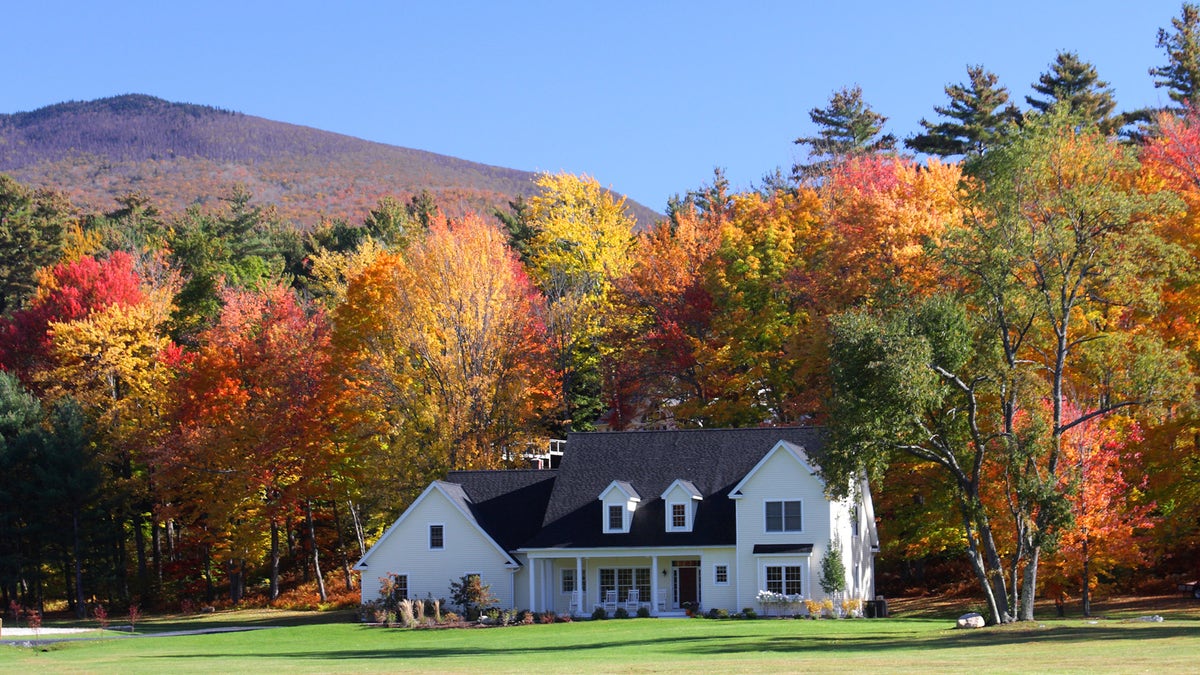
country-house
Ah, country living -- fresh air, wide-open spaces, a slower pace of life. What's not to love? (Once you get used to those really quiet wide-open spaces, that is.) Yet in spite of all those vast acres just waiting for homeowners to stake a claim, country folks are a diminishing breed.
Recent U.N. statistics predict that the percentage of Americans living in rural areas will plummet from its current 46% to 34% by 2050. This exodus is largely tied to following the money (aka job opportunities), but those who do commit to life in the sticks will reap plenty of scientifically proven benefits.
Check out these reasons why country living rules.
Benefit No. 1: More 'vitamin G'
" Vitamin G" stands for greenery -- trees and plants, which the country has in spades. Not merely pretty, they also come with serious benefits that science is just beginning to understand. Scientific studies have shown that when humans are deprived of greenery, they can suffer in a variety of significant ways.
For instance, a University of Michigan study found that when humans spend even a few minutes on a crowded city street, their brain is less able to retain information or control impulses. (Note to New Yorkers: This explains a lot.) Another study found that residents of apartments with views of concrete/asphalt reported higher levels of aggression and violence than did their counterparts living in identical buildings with tree views.
There's also air quality: People living around more trees and grass generally experience lower levels of air pollution, which has been linked to conditions associated with asthma and heart disease).
Benefit No. 2: Fewer psychological problems
Feel like the city is making you crazy? It actually might be. According to the journal Schizophrenia Bulletin, at least 10 studies have shown that people in urban areas are more likely to develop psychiatric disorders such as schizophrenia. The available evidence suggests that more than one-third of all schizophrenia cases may be related to (or greatly exacerbated by) environmental factors in an urban setting.
Additional studies have shown that rural residents are less likely to have anxiety disorders. Scientists examined the prevalence of extreme anxiety in more than 345,000 residents of the Netherlands -- male and female of all ages -- and found substantially lower rates of disorders among those living in relatively green regions. In residential areas with 90% green space, the annual prevalence was 18 per 1,000; in areas with only 10% green space, the rate increased to 26 out of 1,000.
The same study found that green environments can also relieve sadness and depression. That's definitely something to smile about.
Benefit No. 3: You're less likely to get mugged
According to the Bureau of Justice Statistics' annual National Crime Victimization survey, violent crime rates in rural areas are nearly one-third lower than those in urban centers. In 2012, the rate of violent victimizations reported in metropolitan areas was 3.2%, as opposed to 2.1% in rural areas. Rape, murder, and property crime rates per capita are also substantially lower in rural areas. But it's worth noting that country dwellers should install home security systems, since the stats do indicate that home burglary rates are slightly higher in rural areas (probably due to the isolation and space between properties).
Benefit No. 4: You're more likely to own your home
Most people dream of owning, rather than renting, their own home some day, and it seems that possibility gets exponentially higher the farther into the country one is willing to venture. Recent National Census Bureau Statistics show that homeownership is higher in states with more rural communities such as West Virginia (76%), Michigan (74%), Vermont (74%), and Mississippi (73%) than in states with big urban centers such as Washington, DC (41%), New York (52%), and California (54%).
"There is no doubt that many of my clients find they get more for their money and are actually able to buy instead of rent when they move to more rural locations," says mortgage broker Heather Garriock with The Mortgage Group. "The only caveat is whether or not they'll be able to find enough work in those areas to support those mortgages. But on the whole the square footage per dollar is exponentially less expensive in the country."
Benefit No. 5: Lower cost of living
Many people cite a lower cost of living as a reason for making a rural move, and there's undisputed truth to this argument. While your basic food shopping trip might clue you into this ($12 for a box of Cheerios in Brooklyn?!), studies support it, too. For instance, research in the International Regional Science Review found that in Pennsylvania the average urban resident pays 6% more for all six major categories of goods -- groceries, housing, utilities, transportation, health care, and miscellaneous goods and services -- with the greatest difference (13%) occurring for housing costs.
"It is no secret that living outside of the city is more economical on many levels," says Kathryn Blaze, a real estate agent for Sotheby's International Realty who just relocated with her husband and son from New York City to central New Jersey for that reason. "That can become especially important when raising a family."
Not convinced that rural life is for you? Don't panic, urban dwellers! Tomorrow, we report on the awesome scientific benefits of metropolitan living. Read both to learn the good, the bad, and the ugly of calling each place home. But mostly the good.